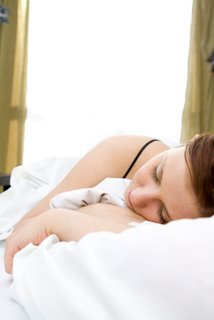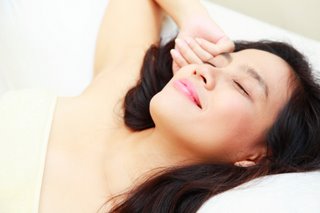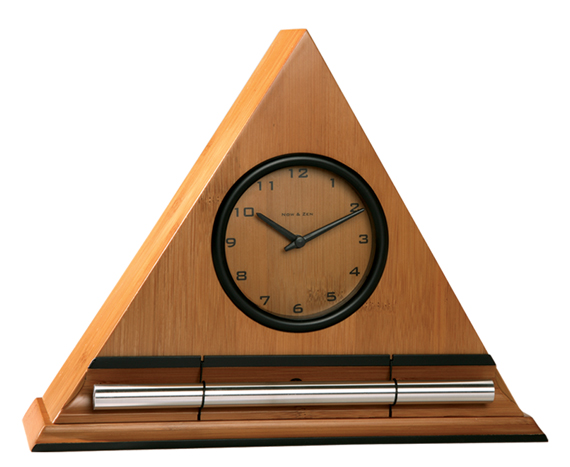
Sleepiness Might Be in the Genes
No matter how little they sleep, some people can keep a skip in their step while others will yawn and struggle through the day. A new study from the University of Pennsylvania School of Medicine found that the reason could be in our genes.
Researchers found that healthy people with one particular genetic variant were generally sleepier than those without the gene. About 25 percent of the general public has the genetic variant, called DQB1 *0602, but only a small percentage of them actually suffer from sleep problems.
One person who has been told by his doctor that he may have this genetic variation is Robert Gibson, a 43-year-old machine shop supervisor in Milan, Illinois. Sleep is supposed to rejuvenate the body, but for Gibson, it can be anything but invigorating.

Sleepiness Might Be in the Genes
It would not be the only gene-linked sleep condition Gibson experiences; he already suffers from bouts of sleep paralysis, a disorder in which sufferers feel paralyzed as they fall asleep or as they wake up. Episodes can last a few seconds to a couple of minutes, but Gibson said the effects of the temporary paralysis seem to bog him down all day.
“It feels like I am drugged down, like there’s a heavy weight on me the whole next day,” said Gibson.
Gibson’s sleep problems are more than just the garden-variety; years ago, doctor’s did find a genetic biomarker that may have to do with his sleep disorders, and, because many genes probably contribute to sleep habits, doctors say Gibson probably has DQB1 *0602 as well.
“He hasn’t been tested for this gene yet, but it could be part of the spectrum of genes that contribute to his sleep habits,” said Dr. Mark Dyken, a professor of neurology at University of Iowa College of Medicine who treated Gibson.
Genes and Heavy-Eyes
For the study, researchers compared healthy people with the gene variant to healthy people without it to see if they suffered from any other sleep-related problems.
The research, published in the journal Neurology, found that people with the gene variant reported feeling sleepier and more fatigued compared to the people without the variant, whether they slept four hours or 10 hours. People with the gene variant also spent less time in deep sleep, and woke up more times during their sleep compared to the non-gene participants.
“When the genetic variant people were fully rested, they still rated themselves sleepy,” said Dr. Namni Goel, lead author of the study and assistant professor of psychiatry at the University of Pennsylvania School of Medicine. “They had a lower drive to sleep when challenged by sleep loss, and overall they had a more fragmented sleep with more arousals in comparison to those who didn’t carry the gene. We found it very interesting that they were healthy people, but when challenged, they looked like narcoleptics.”

Sleepiness Might Be in the Genes
Could Some Sleepiness Be Genetic?
In the study, 92 healthy adults without the gene were compared to 37 healthy adults who had the gene but did not have a sleep disorder. Researchers tested each participants’ sleep quality and self-rated tiredness. They also tested memory, attention, and the ability to resist sleep during the day.
The participants spent seven days in the sleep laboratory. For the first two nights, everyone spent 10 hours in bed. For the following five nights, participants only spent four hours in bed per night. During waking hours, the lights were kept on, and they were allowed to play games, read, and watch movies. They were not allowed to consume foods and drinks that could affect their sleep, such as caffeine, turkey, bananas, or alcohol.
Despite the inconsistent sleep patterns throughout the seven-day trial, results for the memory and cognitive skills were similar in both groups.
The Role of Sleep
Dr. Mark Mahowald, medical director of the Minnesota Regional Sleep Disorders Center, said that the study results are important because people tend to make sweeping statements about sleep deprivation — when sleep is different for everyone because there are huge genetic components that contribute to our slumber.
“The medical profession has been guilty for decades ofsleep deprivation in its trainees, so they made recommendations of the number of hours someone should work, but they made across-the-board, sweeping recommendations,” said Mahowald. “The implication is that everyone is sleep-deprived and sleep-deprivation does the same thing to everyone, but the tolerance and range of sleep is so different for different people.”
“A one-size-fits-all policy is probably not a very wise idea when it comes to sleep,” said Mahowald. “Our society has equated sleepiness with defects of character, like laziness and depression, but really, some people are generally sleepier during the day. They’re more prone to naps, and to sleeping in. We have to accept the fact that sleep duration is genetically determined and not a sign of defect.”
No Rest for the Weary
So what’s a tired person to do? Not much, said doctors, but Dr. Goel said she hopes to continue her research with genetic biomarkers. She said they might help to predict a person’s response to sleep deprivation, especially for those who work a night shift, travel often through many time zones, or those who lose sleep due to personal or family obligations. At any rate, doctors said that tiredness is certainly a manageable condition.
“Down the line, if someone is carrying this gene, maybe they can employ a countermeasure,” said Goel. “Maybe they could have caffeine to counteract some of these symptoms.”
Boulder, Colorado—an innovative company has taken one of life’s most unpleasant experiences (being startled awake by your alarm clock early Monday morning), and transformed it into something to actually look forward to. “The Zen Alarm Clock,” uses soothing acoustic chimes that awaken users gently and gradually, making waking up a real pleasure. Rather than an artificial recorded sound played through a speaker, the Zen Clock features an alloy chime bar similar to a wind chime. When the clock’s alarm is triggered, its chime produces a long-resonating, beautiful acoustic tone reminiscent of a temple gong. Then, as the ring tone gradually fades away, the clock remains silent until it automatically strikes again three minutes later. The frequency of the chime strikes gradually increase over ten-minutes, eventually striking every five seconds, so they are guaranteed to wake up even the heaviest sleeper. This gentle, ten-minute “progressive awakening” leaves users feeling less groggy, and even helps with dream recall.
adapted from abcnews.go.com by Mikaela Conley
Now & Zen – The Chime Alarm Clock and Timer Shop
1638 Pearl Street
Boulder, CO 80302
(800) 779-6383
orders@now-zen.com

The Zen Alarm Clock for a Gradual Awakening
Posted in Bamboo Chime Clocks